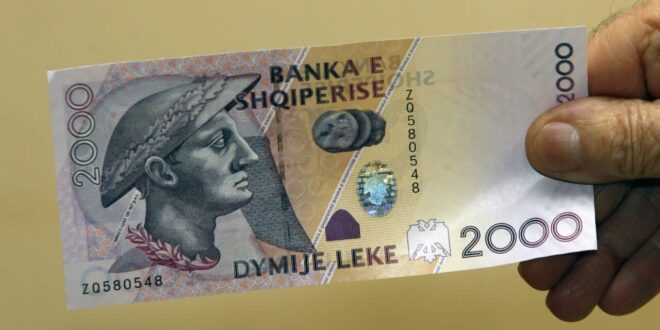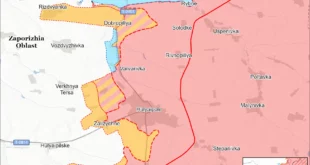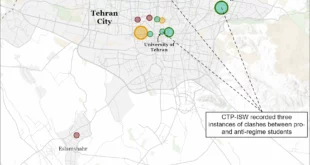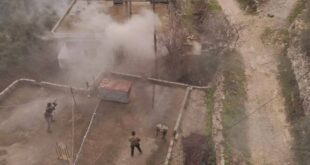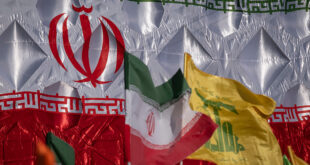Investigators have documented the use of foreign exchange offices in Albania to move drug money, either in crypto or via a centuries-old, trust-based system called Hawala.
The area is known as Dollari – a narrow row of currency exchanges opposite Albania’s central bank in downtown Tirana.
Here, cash is king, and trades are made through men who stand outside their premises holding bundles of bills against a backdrop of euro, dollar and sterling symbols displayed in bright colours.
The exchanges flourished during Albania’s long years of transition from communism, but one did particularly well.
According to special anti-graft and organised crime prosecutors, the B. Lika, Cimi & Keni exchange functioned for years as a secret channel for the illegal circulation of millions of euros on behalf of one of the most powerful international drug trafficking groups in Albania.
Led by brothers Franc and Hajdar Copja, the Copja group stands accused of a bloody string of gangland executions and of trafficking large amounts of cocaine from South America to the European Union between 2018 and 2022.
According to the case file, the proceeds of drug trafficking were stashed away in the cramped exchange office and distributed in smaller instalments to members of the group or transferred abroad via complex schemes to guarantee cocaine payments.
Klodian Braho, a prosecutor at the Special Structure Against Corruption and Organised Crime, SPAK, said that a two-year investigation had documented the transfer of large sums of money through the Hawala system – which relies heavily on trust and personal connections – and cryptocurrency transactions.
“The investigation has proven that the individuals involved in this activity transferred money on behalf of the criminal organisation to several European countries, the United Arab Emirates, as well as to countries in Central and South America,” Braho told BIRN.
The owners of the exchange office, 55-year-old Bashkim Lika and 45-year-old Maklen Mici, were arrested in August last year on suspicion of money laundering in cooperation with a criminal organisation. Both men remain in custody but deny any wrongdoing; the investigation is ongoing.
Investigators and experts say they are not alone.
As Albanian organised crime groups have gone global, parallel systems have emerged to enable the rapid circulation of money outside official, traceable channels, often involving currency exchange businesses and money transfer agencies.
Although the scale of this phenomenon remains unclear, economic experts believe that criminal networks are exploiting legal loopholes and weak monitoring and oversight mechanisms in the foreign exchange market.
“Inspections by the Bank of Albania and tax authorities are often carried out in a formal manner… without deep analysis of the origin of the funds or transaction patterns,” said Eduart Gjokutaj, an economic consultant and head of the Tirana-based non-profit ALTAX, which promotes transparency and sustainable economic development.
“In this context, criminal actors have exploited legal gaps by registering exchange offices under the names of relatives or using separate accounts to conceal transactions, thereby avoiding direct scrutiny,” he added.
Ardian Visha, a lawyer for Lika and Mici, said his clients are innocent.
“The Special Prosecution’s suspicions are based on conjecture derived from data obtained through illegal means of evidence gathering,” he said, referring to communications retrieved from a cracked messaging app. “Moreover, this data is not presented in its authentic form, but as a selective and interpreted version prepared by the prosecuting authority.”
Irregularities
Over the past decade, the number of currency exchange offices in Albania has almost doubled—from 356 licenced businesses in 2014 to 640 at the end of 2024.
The market is highly volatile. According to the Bank of Albania, every year dozens of such businesses cease operating, while just as many new operators emerge. It is an industry rife with irregularities.
Over the past three years, the Bank of Albania has carried out 166 inspections and revoked 132 licences.
The Law on the Prevention of Money Laundering and Financing of Terrorism requires foreign currency exchanges to identify every person conducting transfers over 100,000 Albanian lek, or 1,036 euros, and to report all transactions exceeding one million lek, or 10,356 euros, but the obligation often goes unheeded.
Bank of Albania inspectors have identified many cases in which exchanges fail to keep a proper paper trail of transactions and ignore reporting obligations.
However, the Financial Intelligence Agency, which is tasked with enforcing the Law on the Prevention of Money Laundering and Financing of Terrorism, said that last year it referred only one case to the police.
Hawala and crypto
Franc Copja’s emissary initially got lost looking for the exchange office owned by Lika and Mici. It was August 2020.
A series of messages exchanged via the encrypted Sky ECC app between Franc Copja, an account in the name of the currency exchange, and the 30-year-old Copja emissary helped him find the correct location, where he later withdrew 215,500 euros in four tranches.
After the Sky ECC service so popular with organised crime gangs was cracked by European law enforcement agencies in 2021, the messages eventually reached SPAK.
Subsequent investigation suggested the Copja group was using the exchange to carry out fast, unreported money transfers via Hawala and crypto.
Hawala is an informal system of transferring funds used for centuries in India and Arab countries; based on trust, it involves a network of agents in different countries who accept and disburse deposits on each other’s behalf.
For instance, if money is deposited in London, a person can withdraw it within hours from a second agent in Tirana by presenting a unique code – known as a ‘token’ – while the agents in London and Tirana reconcile their ledgers.
Investigators believe millions of dollars were also moved through the exchange office via virtual currencies. During the investigation into the Copja group, prosecutors traced and seized cryptocurrencies valued at $11.5 million.
SPAK has identified a second, similar group accused of facilitating the transfer of significant sums of money derived from drug trafficking between Switzerland and Albania.
The main defendant in this case, 47-year-old Ervis Ferizaj, was arrested in September 2024 in Lucerne, Switzerland, on charges of drug trafficking, money laundering, and participation in a structured criminal organisation. Ferizaj remains in custody in Switzerland and could not be reached for comment.
In Tirana, Ferizaj is suspected of controlling two currency exchange offices registered under the names of his father and wife and allegedly used to conduct the transfer of illicit funds from Switzerland to Albania.
According to data provided by the Swiss Federal Prosecutor’s Office, the money also circulated through the Hawala system on behalf of other individuals.
The prosecution file states that “Ervis Ferizaj and his associates, in Switzerland and Albania, have stored and managed money originating from criminal activities related to the sale of narcotics”. It also states that they “secured cash as part of a ‘Hawala’ system with the purpose of transferring money to other persons”.
Quick profit
Braho, the SPAK prosecutor, said individuals involved in informal money transfer systems share a common interest with criminal groups – the thirst for fast profits.
These networks earn commission-based fees both for cash transfers via the Hawala system and for cryptocurrency transactions – typically between six and 15 per cent of the total value transferred in physical cash through the Hawala system, or between 0.5 and two per cent of the total value of a crypto transaction.
“This informal system enables the transfer of money in a very short time while simultaneously avoiding the reporting and verification of the funds’ origin, since the agents do not comply with legal and sublegal provisions regarding the registration and identification of the senders and recipients,” Braho told BIRN.
“They do not apply the legal provisions for verifying the lawful source of the money being transferred, nor for the transfer ceiling amounts.”
Gjokutaj, from Altax, said the Bank of Albania has struggled to adapt and tighten monitoring, or keep up with technological advancement.
“The lack of technological capacities to monitor the links between virtual currency and cash transactions, as well as the risks of dirty money being integrated into the formal economy, represent an ongoing challenge for the supervisory authorities,” he said.
The Bank of Albania said it is in the process of approving a new regulation for foreign exchange offices, which, it said, provides for the verification of the origin of capital and the reputation of shareholders, as well as for limiting the amounts that can be held in cash or used in transactions.
 Eurasia Press & News
Eurasia Press & News
